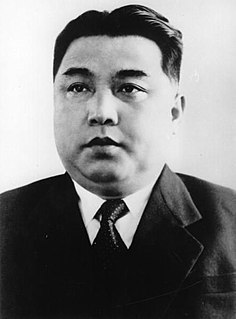A Quote by Christian Lous Lange
It is against this concept of the sovereign state, a state isolated by protectionism and militarism, that internationalism must now engage in decisive battle.
Related Quotes
I do not exclude this, but I would like to draw your attention to one absolutely key aspect: In line with international law, only the U.N. Security Council can sanction the use of force against a sovereign state. Any other pretext or method which might be used to justify the use of force against an independent sovereign state is inadmissible and can only be interpreted as an aggression.
She was in that highly-wrought state when the reasoning powers act with great rapidity: the state a man is in before a battle or a struggle, in danger, and at the decisive moments of life - those moments when a man shows once and for all what he is worth, that his past was not lived in vain but was a preparation for these moments.
The members of a body-politic call it "the state" when it is passive, "the sovereign" when it is active, and a "power" when they compare it with others of its kind. Collectively they use the title "people," and they refer to one another individually as "citizens" when speaking of their participation in the authority of the sovereign, and as "subjects" when speaking of their subordination to the laws of the state.
Louis XIV was very frank and sincere when he said: I am the State. The modern statist is modest. He says: I am the servant of the State; but, he implies, the State is God. You could revolt against a Bourbon king, and the French did it. This was, of course, a struggle of man against man. But you cannot revolt against the god State and against his humble handy man, the bureaucrat.
How can you have the religion of the sovereign be the religion of the state if the sovereign belongs to many religions? And it's at that point, I think, historically, that you start to see people saying maybe the state should not associate itself with any religion. Maybe there shouldn't be any official religion.






























